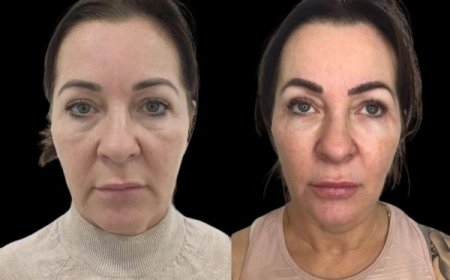Building Resilience Through Lived Experience: Why Real Stories Matter in Healing
Explore how sharing real stories of lived experience fosters resilience, connection, and healing. Learn why authentic narratives are essential in trauma recovery and community empowerment.

In todays fast-moving world, conversations around mental health, trauma, and recovery have become more prominent. But amidst statistics, clinical language, and frameworks, one element remains consistently powerful: real-life stories. There is a profound difference between hearing advice and witnessing transformationand thats where lived experience becomes irreplaceable.
The Power of Lived Experience in Recovery
People who have walked through hardship bring a level of authenticity that no textbook can replicate. They dont just speak about traumathey speak from it, through it, and beyond it. These voices create space for hope, not through abstraction but through real-world evidence that healing is possible.
Whether the subject is addiction, incarceration, abuse, or homelessness, those whove navigated these paths firsthand offer more than insightthey offer evidence that survival can lead to strength. Their stories become a lifeline for others still inside the struggle.
Why Storytelling is a Critical Tool in Mental Health Advocacy
Storytelling bridges the gap between the clinical and the personal. It humanizes data and adds depth to conversations often dominated by professionals or policymakers. When a survivor shares their journey, it becomes easier for others to relate, reflect, and eventually seek support.
This is especially true in marginalized communities where trust in formal systems may be lacking. Hearing a relatable story from someone who has walked a similar path can serve as a catalyst for change, making people more likely to pursue recovery or seek help.
What Makes a Story Transformative?
Not every personal story sparks transformation. The difference often lies in intention and delivery. Transformative storytelling:
-
Centers on growth, not just the pain
-
Inspires action, not pity
-
Demonstrates clarity, not confusion or unresolved trauma
-
Focuses on the persons humanity, not their labels or diagnoses
A good storyteller knows when to share the wounds and when to reveal the healing. They dont just recount eventsthey reframe them in ways that empower both themselves and their audience.
Elevating Voices with Professional Expertise
Professionals in the mental health and criminal justice fields are increasingly recognizing the value of partnering with individuals who have lived experience. In fact, many conferences and organizations now invite guest speakers who can offer authentic, on-the-ground perspectives. These speakers aren't simply narrators of their pastthey are educators, advocates, and motivators.
One standout figure in this space is Tonier Cain, a nationally recognized voice in trauma-informed care and criminal justice reform. Her life storymarked by childhood abuse, addiction, and incarcerationhas become a transformative tool for change. Through her work, she not only educates audiences but deeply moves them with her authenticity. For those interested in having a dynamic speaker who embodies experience and authority, her keynote speaker page offers a compelling look at her work.
Trauma-Informed Approaches Backed by Experience
The trauma-informed movement continues to gain momentum in behavioral health, education, and correctional systems. Yet, when trauma-informed care is led solely by academic theory, it can fall short. Whats missing? The voices of those who have lived it.
Including people with lived experience in program design, staff training, and public education helps shift the narrative. Instead of seeing individuals as problems to be managed, we begin to see them as people with stories, resilience, and potential.
How Organizations Can Embrace Lived Experience
If youre in a position to influence mental health programmingwhether in a school, hospital, nonprofit, or government settingthere are concrete ways to incorporate lived experience:
-
Hire peer mentors or peer support specialists These roles allow individuals in recovery to directly support others.
-
Feature guest speakers with lived experience Personal narratives often resonate more deeply than clinical training alone.
-
Include survivors in leadership and planning Their insights can improve service delivery and make programs more effective.
-
Offer storytelling workshops Help survivors build confidence in sharing their journeys in impactful, structured ways.
The Role of Trust in Healing and Change
Trust is the foundation of any successful recovery or advocacy effort. People are more likely to accept help from those they trust. And trust often comes from knowing that someone truly understandsnot because theyve studied trauma, but because theyve lived it.
Thats why incorporating lived experience isnt a token gestureits a strategic necessity. It builds the kind of trust that no amount of credentials can replicate.
Conclusion: The Future is Experience-Driven
As the mental health and criminal justice systems continue to evolve, its clear that the voices of lived experience must take center stage. Their stories are not just testimonies of survivalthey are blueprints for transformation, growth, and healing.
When experience meets expertise, the result is powerful, lasting change. Leaders like Tonier Cain are showing the world how one persons story can ignite systemic reform and human connection. And in a world craving authenticity, thats exactly what we need.


































